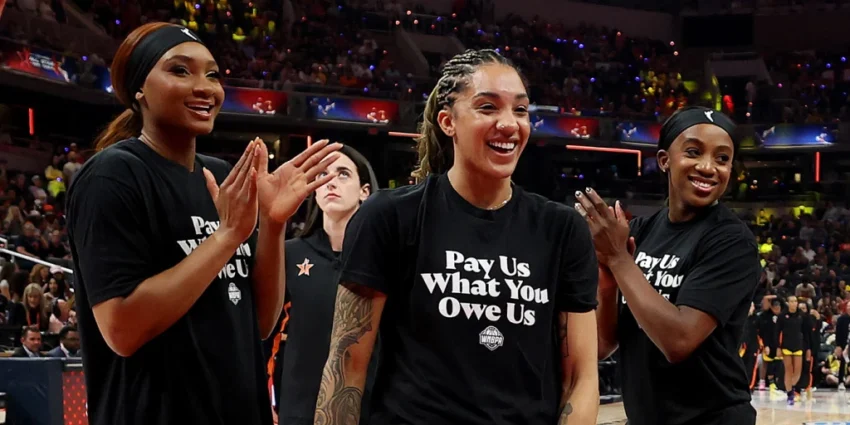by: Alana Brown-Davis
This weekend, the annual WNBA All-Star Game was held in Indianapolis, Indiana at the Gainbridge Fieldhouse. Tickets went on sale at the end of April and sold out within hours, a testament to the gains that the league has made in a few years. Rosters were selected through fan voting on the WNBA website. Fan ballots consisted of a maximum of 10 players including four guards and six frontcourt players. The final roster included ten players ranked according to their total amount of votes. These included Caitlin Clark, Napheesa Collier, Aliyah Boston, A’ja Wilson, Breanna Stewart, Paige Bueckers, Kelsey Mitchell, Lexie Hull, Sabrina Ionescu, and Angel Reese.
Caitlin Clark and Napheesa Collier were captains of their respective teams Teams Clark and Collier. Team Collier won with their leader setting a record of 36 points. The final score was 151-131.
One of the biggest facets of the game wasn’t necessarily the game itself. Every player wore black shirts with a stern message in white saying “Pay Us What You Owe Us”. WNBA players last signed a collective bargaining agreement in 2020 and are pushing for an updated version. Since then the economics of the league and the nation have changed dramatically.
According to NBC News, the leaps that the league has made over the past few years has put it in a renaissance. “From 2019 to 2023, the WNBA’s revenue increased from $102 million to $119 million, according to Bloomberg.” Last season, the WNBA set records for merchandise sales and its viewership was its highest in two decades.
With team expansions going into the next decade and new deals, the league keeps the ball rolling. In the minds of many people, if you’re an athlete, you’re typically making much more money than the average American. That’s not the case in the WNBA. On the Los Angeles Sparks team for example, several players make below $200,000.
Fans and viewers took to social media to express their annoyance with the players for protesting. After all if you’re a professional athlete making tons of money, what do you have to complain about? Some have written the athletes off as money hungry, whining when there are Americans who will never scratch the surface of what they make. And yet, when a league seems to be in its moment of Manifest Destiny, stretching towards the great unknown, isn’t it valid that the people who make that expansion possible want a return from it?

